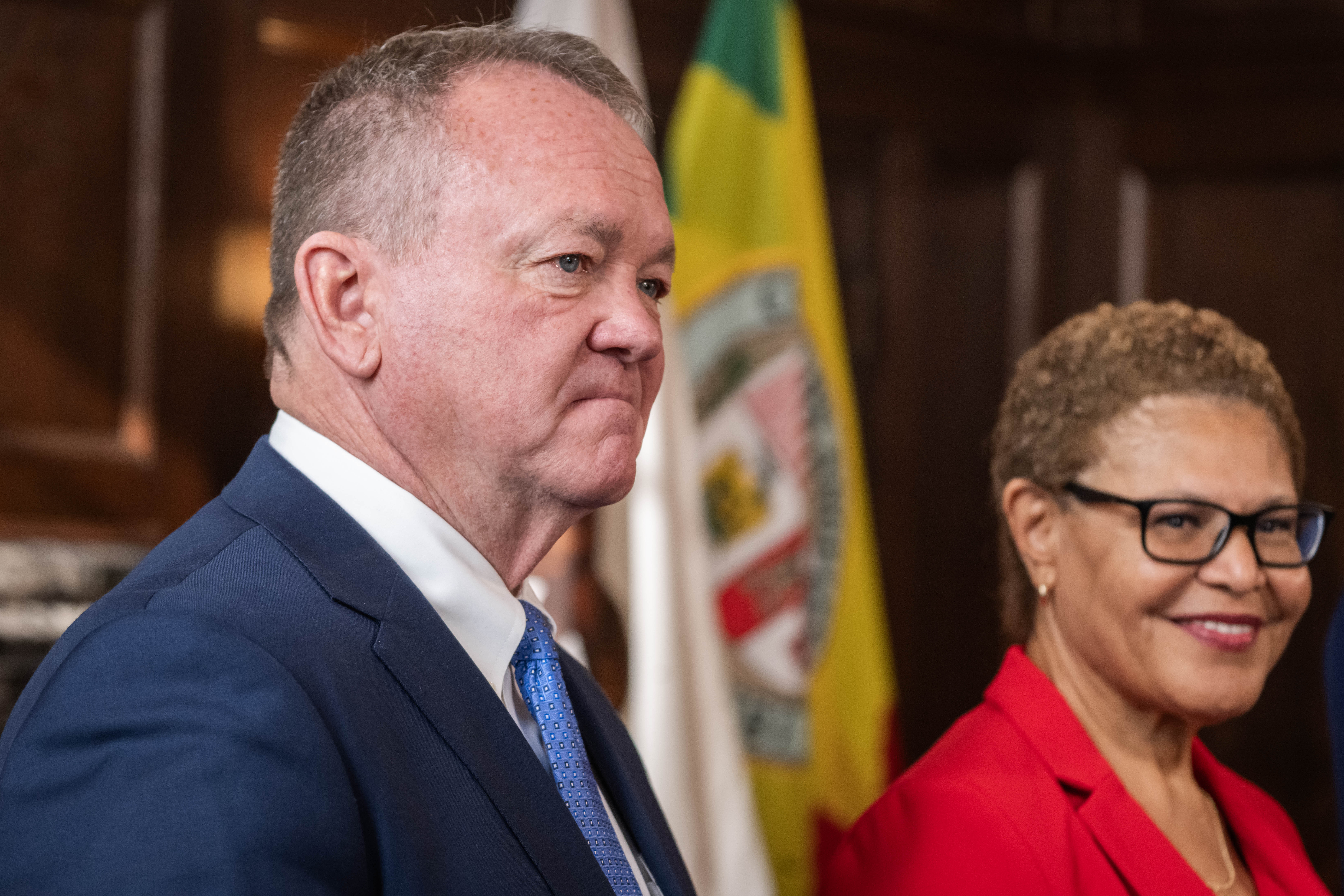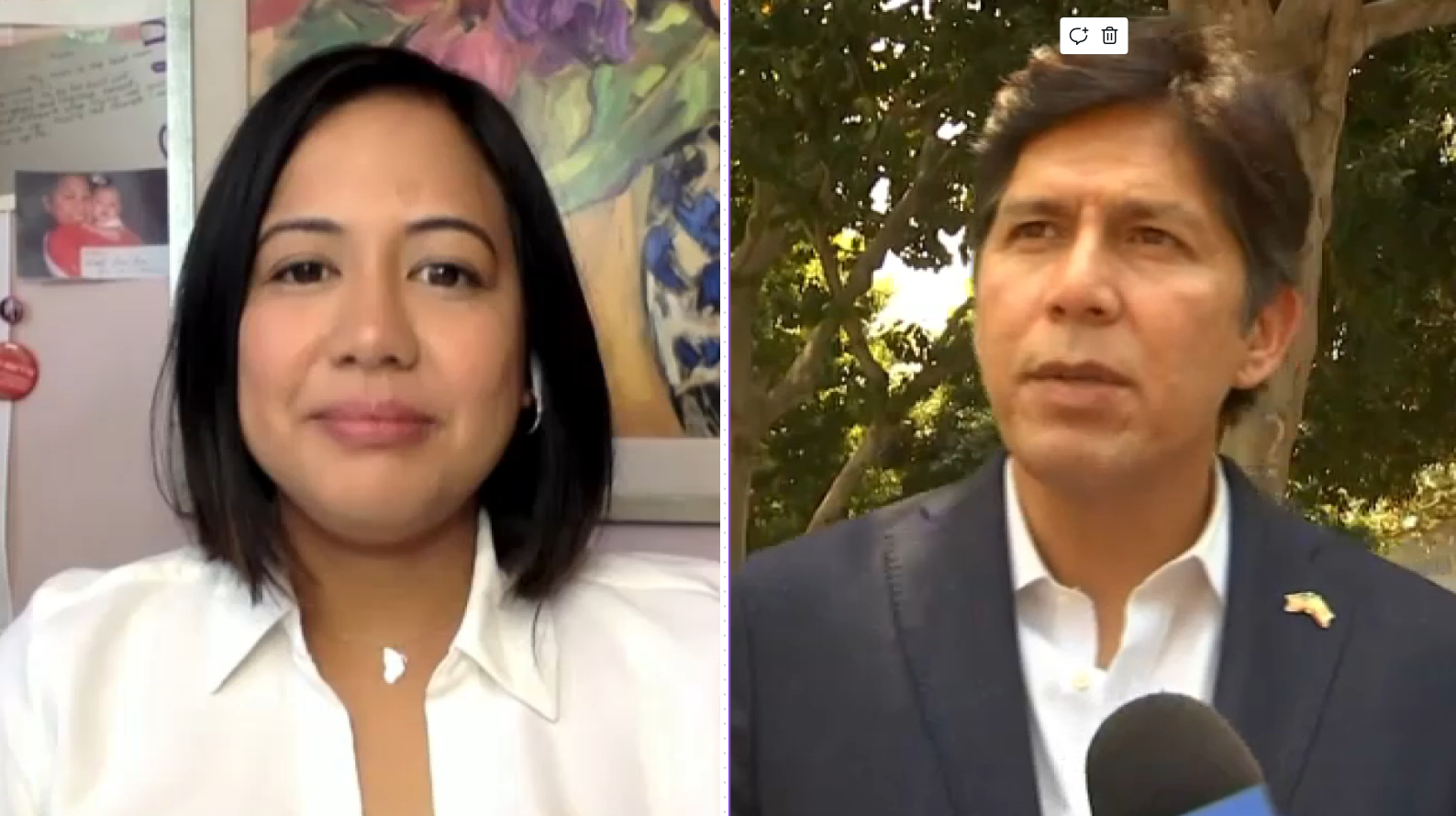Los Angeles moved Thursday to bring order to its emerging legal marijuana industry, proposing rules for how and where the fragrant buds will be grown and sold while driving out rogue operators. There will be no swaying fields of bright green pot plants along the Hollywood Freeway - businesses will only be allowed to grow indoors.
Dispensaries would be kept at least 800 feet from schools and libraries - and each other - and residential neighborhoods would be off-limits. Other guidelines establish a system for issuing what is expected to be thousands of licenses for all aspects of the cannabis marketplace, from distribution to storefront sales.
"No one neighborhood should bear the brunt of the cannabis business," City Council member Nury Martinez said.
The proposed rules "will help us make sure that there is no concentration of pot shops in just a handful of communities," she said in a statement. Medical marijuana was legalized in California over two decades ago, and for years Los Angeles has been unruly and largely unregulated terrain for the marijuana industry.
The city attorney has shuttered hundreds of illegal dispensaries in recent years. California voters last year agreed to legalize recreational marijuana use for adults in 2018. The state and cities are faced with the challenging task of trying to govern a vast, emerging industry with a projected value of $7 billion.
Los Angeles, home to 4 million people, will be by far the largest market. Earlier this year, city voters endorsed another attempt to regulate the pot business locally, leading to the proposed regulations on Thursday.
The rules, if approved later this year, would "help us create a clear and enforceable set of regulations," said Paul Koretz, a councilman. There is fear in some neighborhoods that they could become overwhelmed by new pot businesses next year with the arrival of legalization, or see a rise in crime or traffic near dispensaries.
News
Top news of the day
Proposed rules seek to locate businesses in appropriate areas. Commercial cultivation would be limited to industrial areas, for example. The buffer zone would keep pot businesses away from public parks and schools, where children gather.
There are similar restrictions in other states. In Washington, the state's legal marijuana law forbids pot growers, processors or retailers from operating within 1,000 feet of schools, playgrounds and parks, among other locations. In some cases that can be reduced by local authorities.
There is a similar rule for a buffer zone around schools and playgrounds in Colorado. However, Colorado also permits cities and counties to ban pot businesses, which most do, leading to a concentration of pot shops in Denver and ski resort towns.
City licensing is critical to businesses, since they need to be licensed locally before being granted a state license. The Southern California Coalition, a marijuana industry trade group, called the release of the draft rules a positive step to make sure businesses "are not left out of the state process."
In the background is widespread uncertainty about whether the Trump administration will attempt to intervene in states where marijuana is legal: Pot remains illegal at the federal level. And a banking dilemma remains unresolved.
Because marijuana is illegal in the eyes of the federal government, many dispensaries and growers are in effect locked out of the banking industry, so much of the business is conducted in cash. A state study is underway.
"Voters called upon us to prepare our city to enter this brave new world of legal marijuana," Councilman Bob Blumenfield said in a statement. "As the largest city to regulate marijuana, we will be the blueprint for the rest of the nation."



